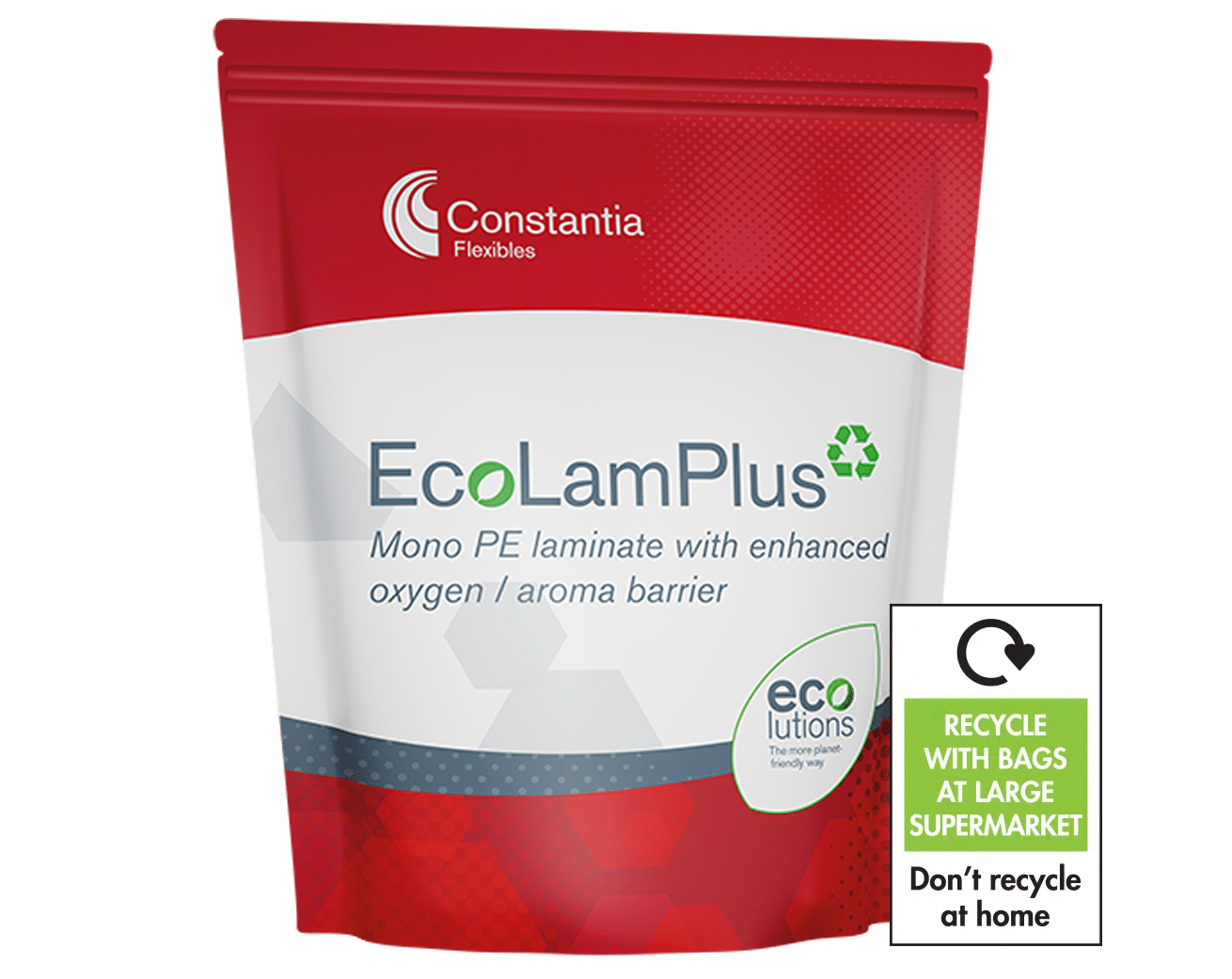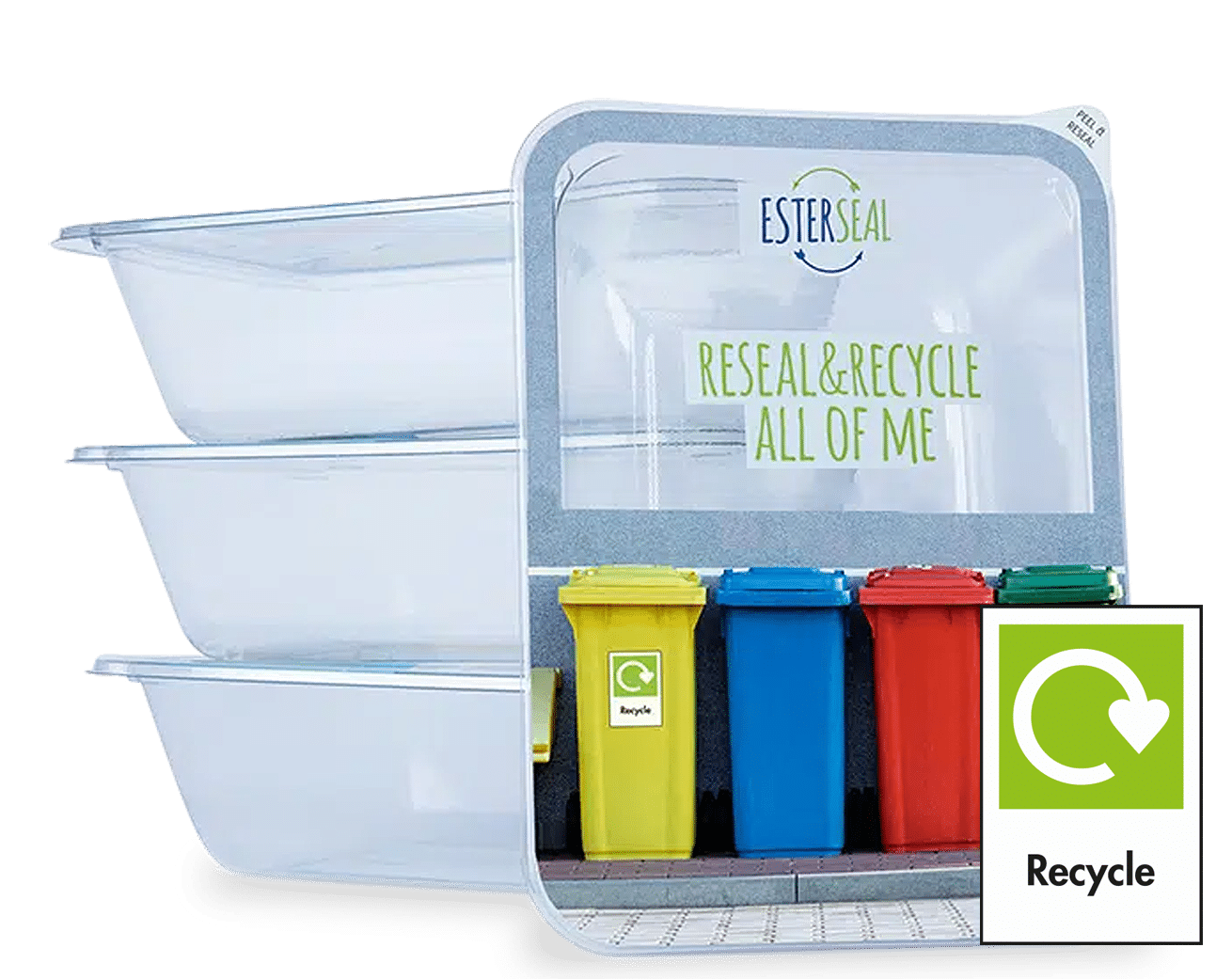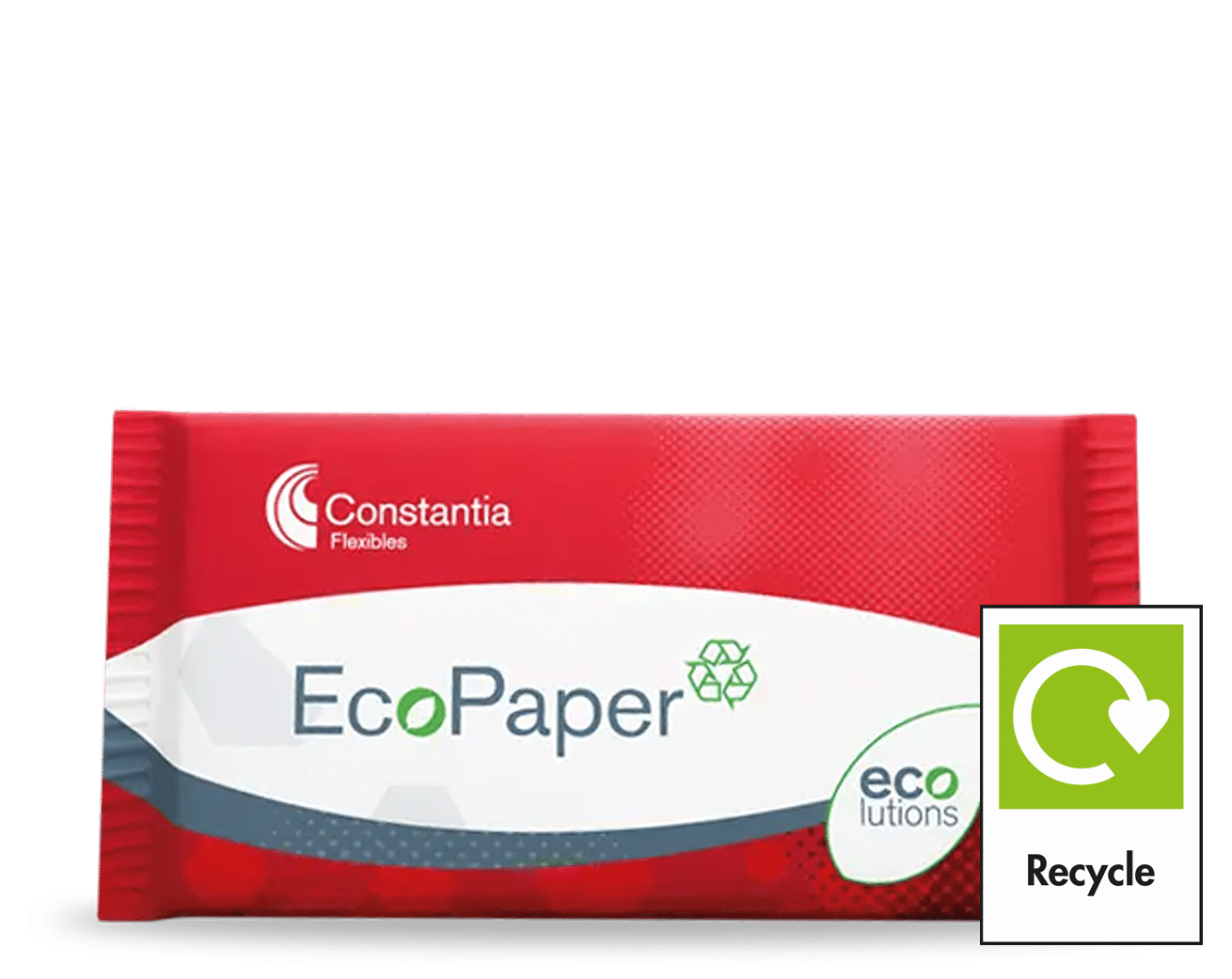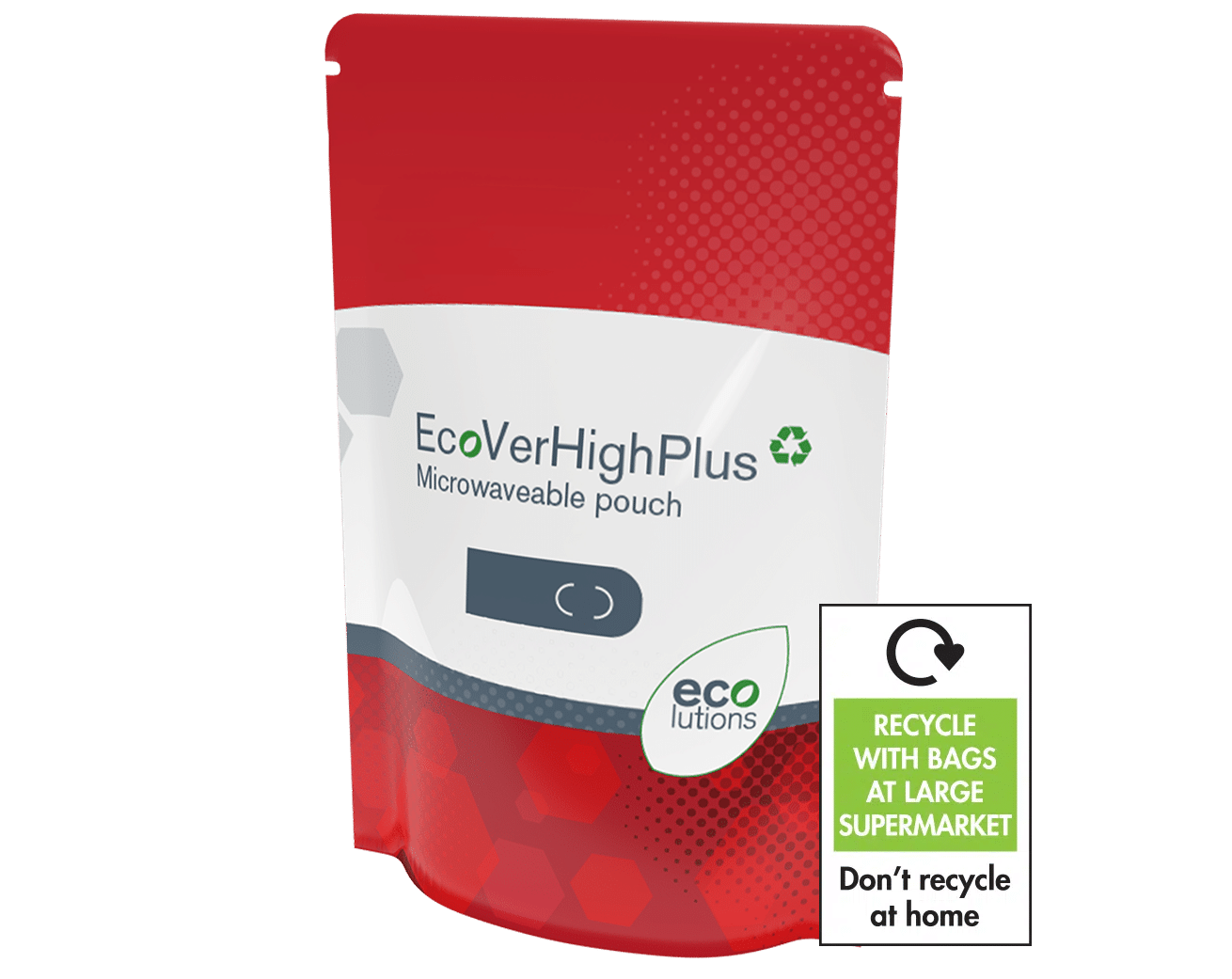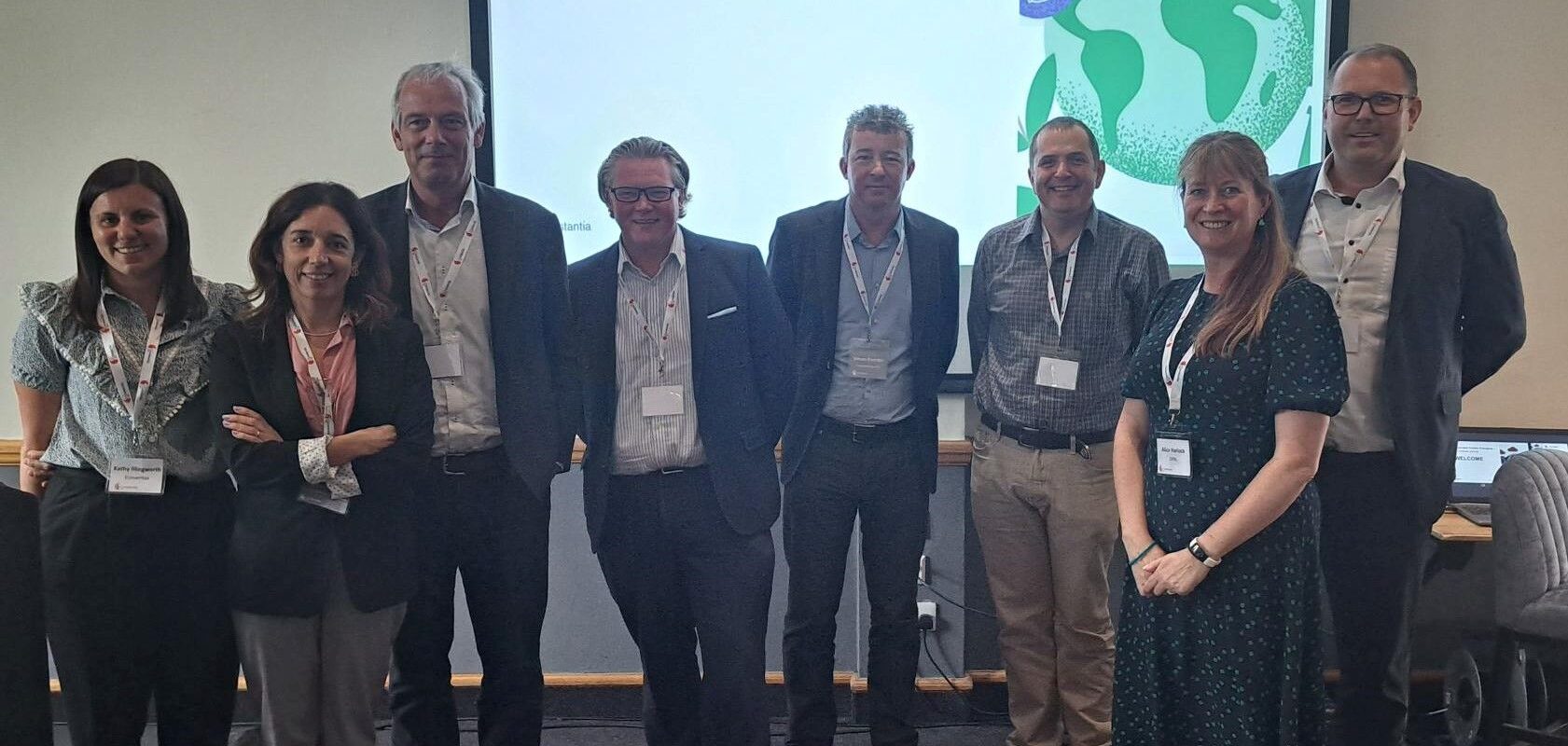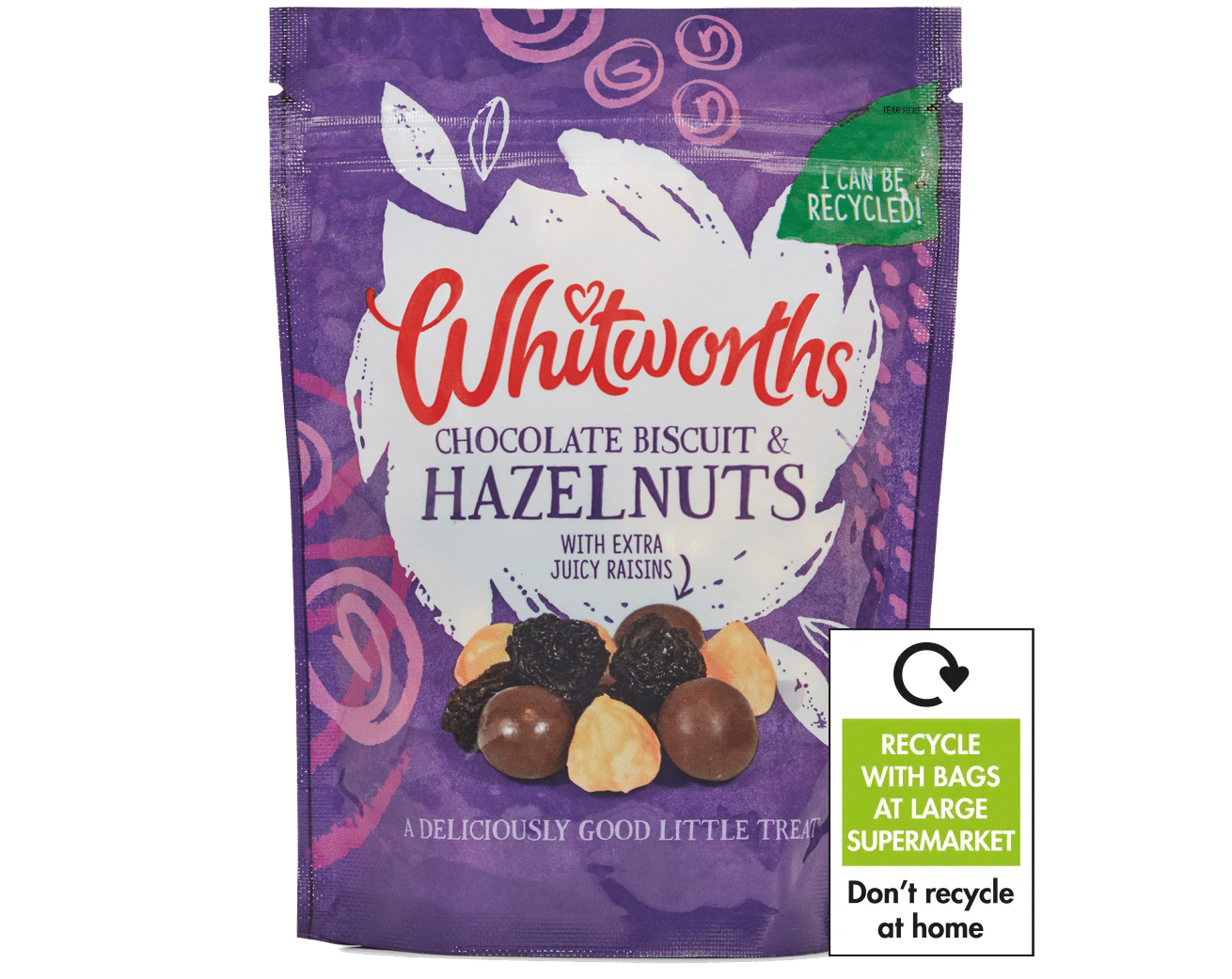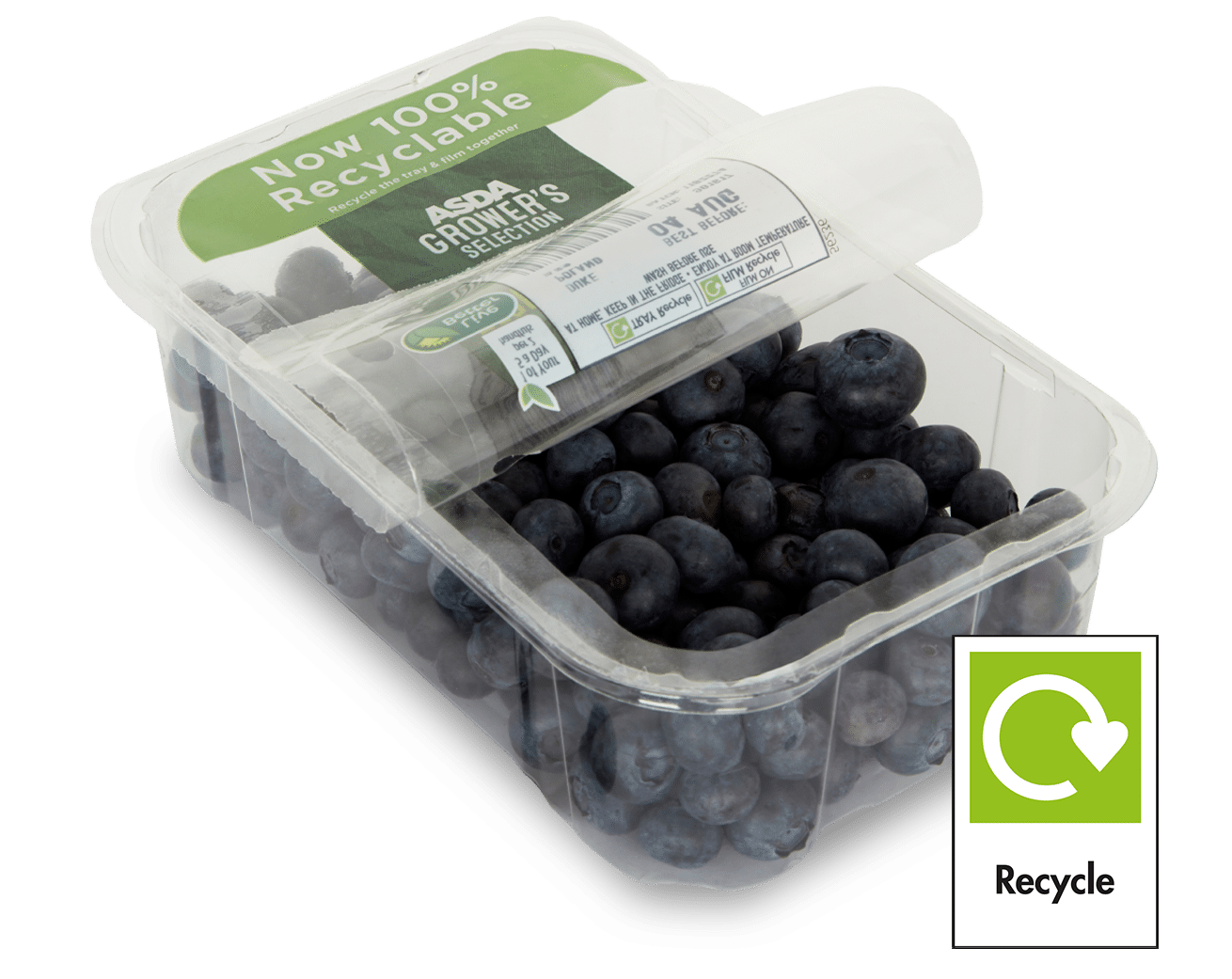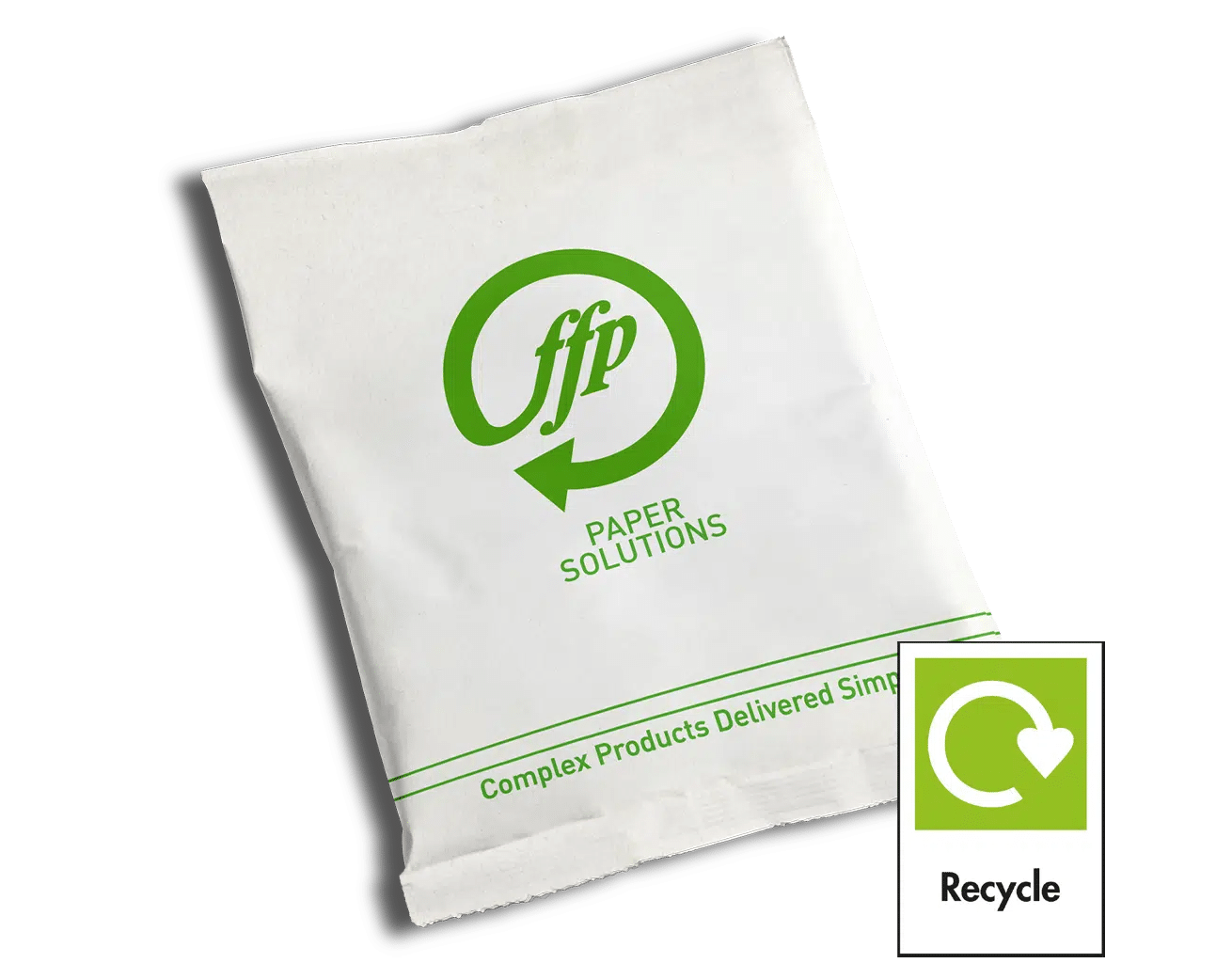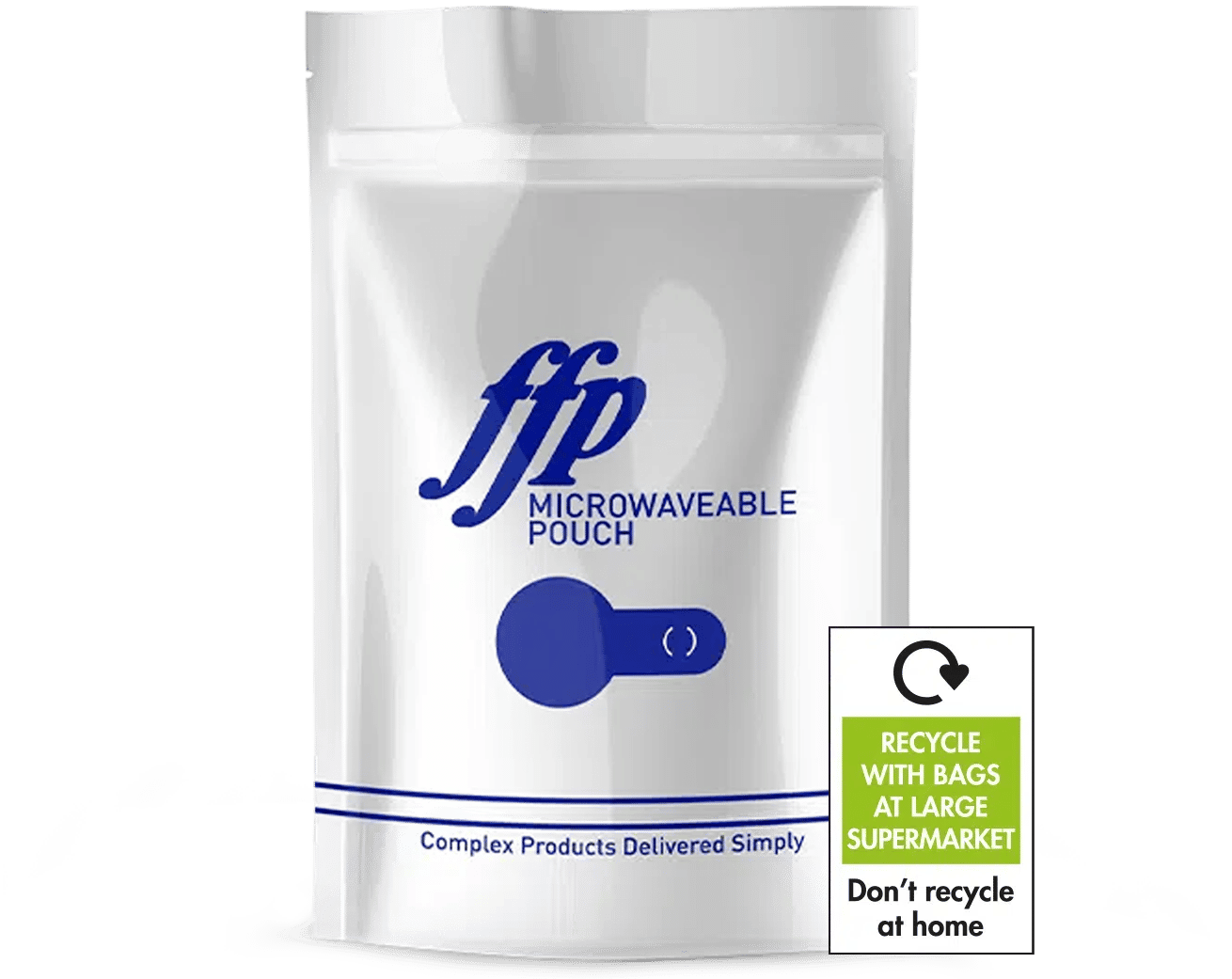Constantia FFP retain BRCGS rating of AA
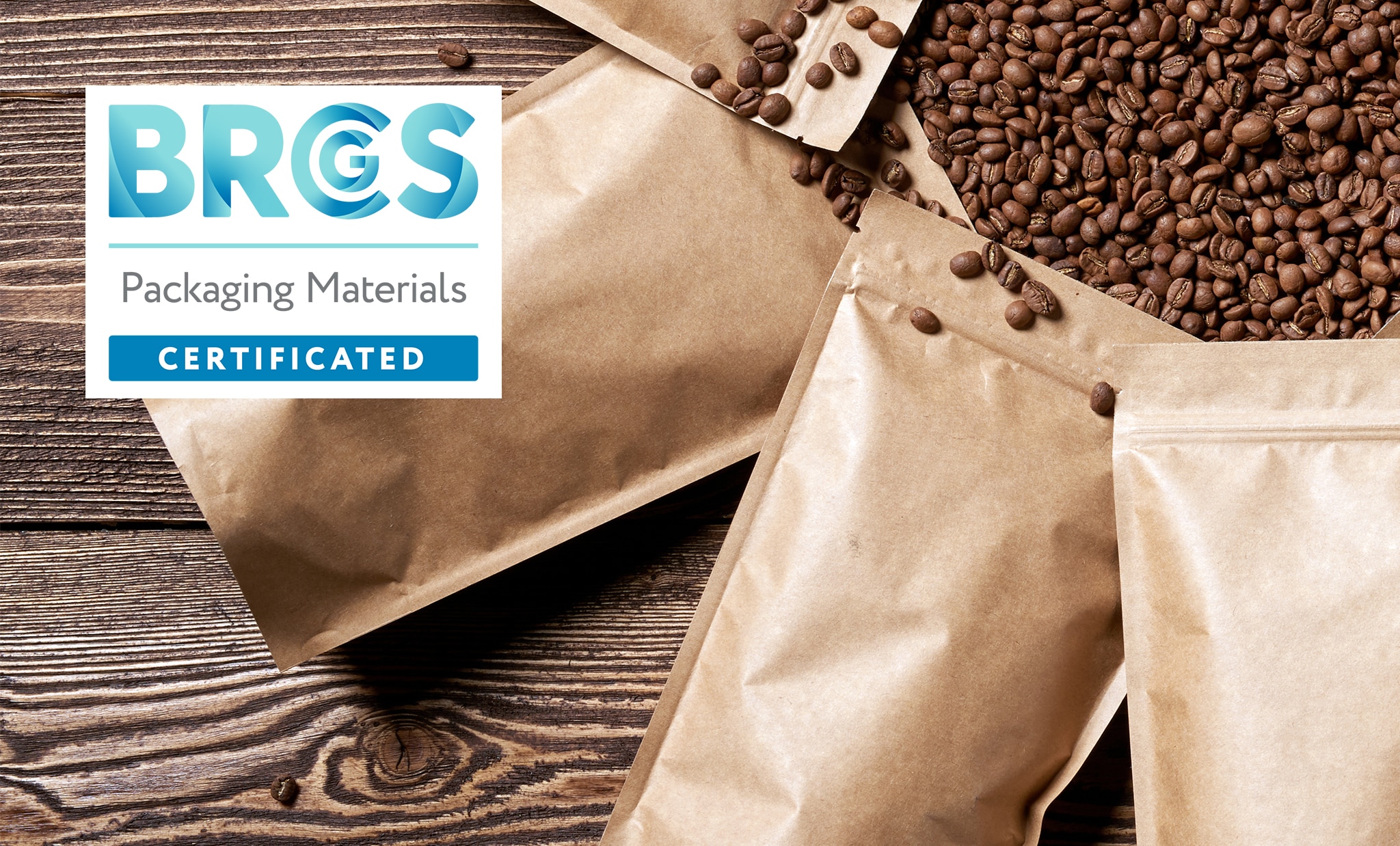
We are proud to announce that we have retained our BRCGS grade of AA, we’re incredibly proud to have received their highest grade. This BRCGS certification confirms our dedication to implementing operational excellence and best practices in accordance with the BRCGS’ global food safety standards for quality packaging.
What is BRCGS?
BRCGS stands for the Brand Reputation Compliance Global Standards. It is a global organisation that enforces the food safety and standards throughout the entire supply chain for the food industry. They ensure legal requirements are met at every touchpoint and set a benchmark for best practices across food safety, packaging materials, manufacturing, ingredients, storage and distribution, Gluten-Free, Ethical Trading, and more. Founded in 1996, the BRGCGS standards are currently used by companies in over 130 countries.
What are the BRCGS grades?
BRCGS grades range from AA (best) to Uncertified (fail). A company’s grade is determined by an audit carried out by the BRCGS certification body. You will be assessed on how well you conform to certification standards and specifications, listing the number of non-conformances.
Non-conformities are defined as critical, major, or minor, depending on the type and risk level, with critical non-conformities relating to food safety or legal issues. The number and type of non-conformities you have, indicate your BRCGS grade. Any critical non-conformities can result in non-grading, meaning a failure or removal of your certificate.
An overview of the BRCGS grades:
- AA Grade: 5 minors or less.
- A Grade: 5 to 10 minors.
- B Grade: 11 to 16 minors. Or 1 major minor with up to 10 minors.
- C Grade: 17 to 24 minors. Or, 1 major with up to 16 minors, or 2 majors with up to 10 minors.
- D Grade: 25 to 30 minors. Or, 1 major with up to 24 minors, or 2 majors with up to 16 minors.
- Uncertified: 1 or more criticals or 3 or more majors. It can also be uncertified for 31+ minors, 1 major with 25+ minors, or 2 majors with 17+ minors.
The benefits of being BRCGS Certified
Not only are we proud to be associated with the approved standards set by BRCGS, but having a BRCGS certification also offers several additional advantages, such as:
Meeting food safety standards
A high BRCGS grading illustrates that we take food hygiene and safety seriously. Putting in place the correct processes and procedures to meet legal requirements.
Supply chain confidence
With more and more companies aligning with the BRCGS standards, you may find clients prefer to partner with those who work to similar values and have a higher BRCGS grading.
Customer trust & loyalty
Customer shopping patterns are evolving, and more are aligning with their ethical values. They will purposely choose to trust and purchase from those who incorporate safe, sustainable solutions.
Encourages good manufacturing practices
A BRCGS grading illustrates that we are implementing efficient and sustainable processes. This not only meets the highest standard of food safety but also offers cost-effective, long-term solutions.
Reflects who we are
At Constantia FFP, we’re aware of our environmental impact and responsibility, that’s why it is one of our core values to implement innovative packaging solutions that help our clients and the planet. Our BRCGS AA reflects our continuous efforts in our sustainability mission.
Looking to the future
Our BRCGS rating of AA illustrates to our clients, customers, and colleagues that we are focused on providing the highest-quality food packaging in the market. We offer premium packaging products to the food industry, including printed and plain flexible packaging, pre-made pouches, and recyclable lidding film.
Over the years, we have invested heavily in our manufacturing processes and capabilities. So, we are incredibly proud of this BRCGS grading and helping others incorporate sustainable flexible packaging solutions that are both functional and branded for their industries.
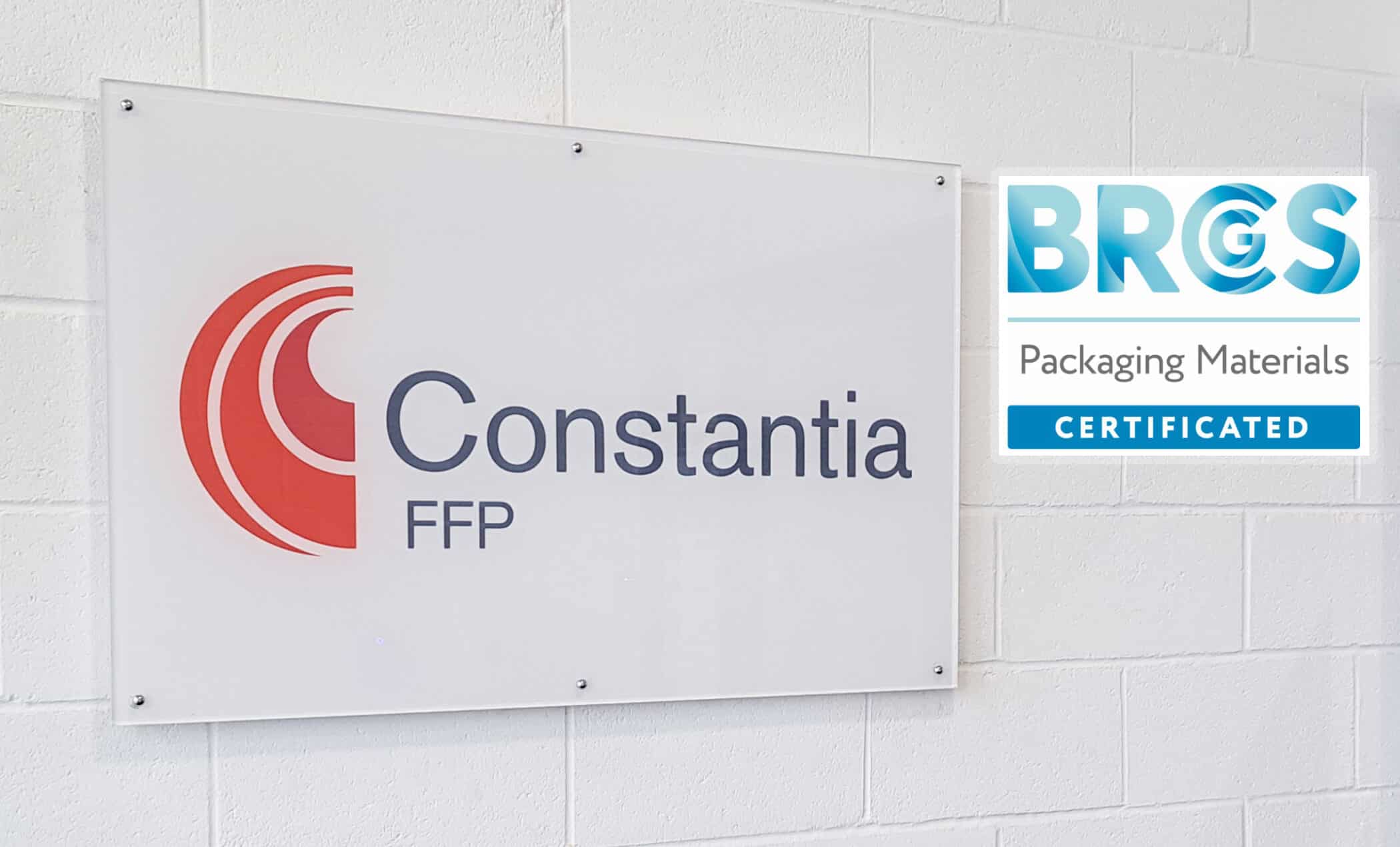
Constantia FFP Ltd are delighted to announce that following an unannounced audit, they have not only maintained their BRCGS certification, but have achieved the highest rating of AA+. This certification demonstrates the company’s commitment to continuously implementing best practice and operation to a globally recognised standard of quality for packaging within the food industry.
The BRCGS Packaging Standard is the first packaging standard to be recognised by the Global Food Safety Initiative (GFSI) benchmarking committee, providing customers with the confidence that supplying companies can prove compliance with their approval processes.
Constantia FFP supply high quality, printed and plain flexible packaging extensively into the food market, including pre-made pouches, heatseal lidding films and films for high temperature oven use. Based in Northamptonshire in the UK, Constantia FFP have invested significantly in their manufacturing capabilities over recent years to meet growing customer demand and enable them to continue to drive the innovation of sustainable flexible packaging solutions.
Helen Smith, SHEQ Manager of Constantia FFP, comments: “Achieving a AA+ rating for an unannounced audit is something that we are extremely proud of. It truly reflects the commitment and dedication of the team at Constantia FFP who have been meticulous in their approach to achieving the highest standards possible to produce packaging for direct food contact”.
Why not contact us to find out more!
Due to last year’s success, Constantia FFP is excited to share that they will attend and exhibit at Packaging Innovations & Empack 2024. The ever-growing packing innovations event in the UK will take place on the 21st-22nd February at Birmingham’s NEC arena and Constantia FFP will be at stand N62.
We’re looking forward to meeting and collaborating with some familiar faces and new market contributors and discussing sustainable solutions and future developments to maintain and improve the food packaging industry.
Once again, the Constantia FFP team will promote our sustainable range of products, which are still making positive changes within the industry. These include our Recyclable Laminates and Pouches, Recyclable Lidding Film, EcoPaper Packaging and Recyclable Flexible Microwave Packaging.
Recyclable Laminates and Pouches
A recyclable packaging solution available in PE and PP in a range of formats with outstanding functionality.
Recyclable Lidding Film
The first mono material resealable pack in the UK to be classified as ‘Recycle’ by OPRL and collected at kerbside.
Recyclable Paper Packaging
A fully recyclable paper packaging solution that can be heat or cold-sealed and is available with barrier options and in a range of formats.
PP Steam – Recyclable Microwavable Packaging
A recyclable microwavable packaging solution that can be recycled via the PP waste collection stream, as classified by OPRL.
If you’ve yet to register your attendance, click the link below to use our referral link. We look forward to seeing you there. To find out more about Packaging Innovations & Empack just click here.
At Constantia FFP, we are wholeheartedly committed to developing eco-friendly materials and pack formats that help reduce any negative impact on our planet. Our technical expertise, innovation and manufacturing capability put us in an optimal position to drive more sustainable and flexible packing solutions for our customers. We’re eager to push these ideas forward and share them with like-minded businesses at Empack 2024.
View Our Sustainability Promise

Tuesday the 27th of June saw Northampton’s Hilton Hotel host FFP’s Sustainability Day. A free event for guests, stakeholders and industry leaders to come together and share their knowledge. The theme for this year’s event focused on the entire lifecycle of sustainable packaging, with guest speakers providing pivotal insights at every stage. Covering key topics including challenges, opportunities, and what the future could look like for the packaging industry.
Sustainability Day Recap
Beginning the morning with warm drinks and a warm welcome, our host, Thomas Schulz, Vice President of Group Marketing and Communications at Constantia Flexibles, opened this long-awaited event. Sharing his vision for sourcing sustainable packaging before handing over to his colleague, Martina Wagner.


Martina set the scene for our audience by providing an overview of the packaging marketplace as it stands, the challenges we face in the industry, and Constantia’s focus “design for recycling”.
Jonathan Moore is the Sector Specialist Packaging at WRAP and walked us through the food-grade challenges we’re facing for non-PET recycled polymers. Including designing effective barriers, meeting certification regulations and staying on top of ever-changing global development. However, we know challenges inspire innovation which our next speaker delved into a little deeper.


The Product Manager at Constantia Flexibles, Frank Eger, highlighted the importance of implementing sustainable solutions into the lifecycle of packaging. Providing realistic and exciting opportunities with alternative options such as Paper Packaging Solutions. Naturally, the idea of possibilities led to an animated panel discussion about the future of packaging.
Cristina Delgadinho, Global Product Manager at Constantia Flexibles, and Simon Fletcher, VP Sales, at Constanta FFP, shared Constantia’s case studies and how challenges in the development of mono polymer laminates have been overcome at Constantia and the vision for the future at Constantia Flexibles.

Rob Thompson of The Co-op followed with a deep insight into the Co-op’s own sustainable packaging strategy, addressing the highs, lows and continued developments. Rob provided a detailed view of how regulations, such as the Plastics Pact, have impacted retailers and how they are driving change at The Co-op.
Alice Harlock of OPRL, continued discussions around future hurdles such as mandatory labelling with EPR. As well as incorporating consumer insights about recycling costs, education and convenience.


Kathy Illingworth, Head of Sustainability Consulting and Policy at Ecoveritas, explained the importance of data analysis; offering her expert advice on how to make our own data work for our businesses. Using customer research, reporting and EPR legislation updates effectively and sustainably.
For our final topic, Johnathan Moore stepped up once again to summarise our Kerbside Waste Collection service and review the FlexCollect Project, highlighting the successes, learnings and next steps. Before Thomas Schulz wrapped up the event with a final panel discussion.

We were delighted to be joined by so many industry specialists and for the insights they shared from their respective fields. The day was packed full of great conversations, new partnerships and exciting ideas to continue our efforts of ensuring sustainability at every stage of the packaging journey.
Thank you to everyone who attended. We look forward to working with you all and coming together again at our next event.
Northampton, May 4th, 2023
FFP is delighted to announce that our Sustainability Events are back ‘in person’ for 2023 and registration for our next event, being held on Tuesday 27th June at the Hilton Hotel in Northampton, is now open!
Following the success of our previous events, we are thrilled to once again be bringing packaging industry leaders and stakeholders together to provide clarity, discuss challenges and share expert knowledge and insights from their respective fields.
We are delighted to be joined by guest speakers from organisations such as WRAP, OPRL, The Co-op, Ecoveritas, Constantia Flexibles and more, who will take us on a journey to look at the entire life cycle of sustainable packaging.
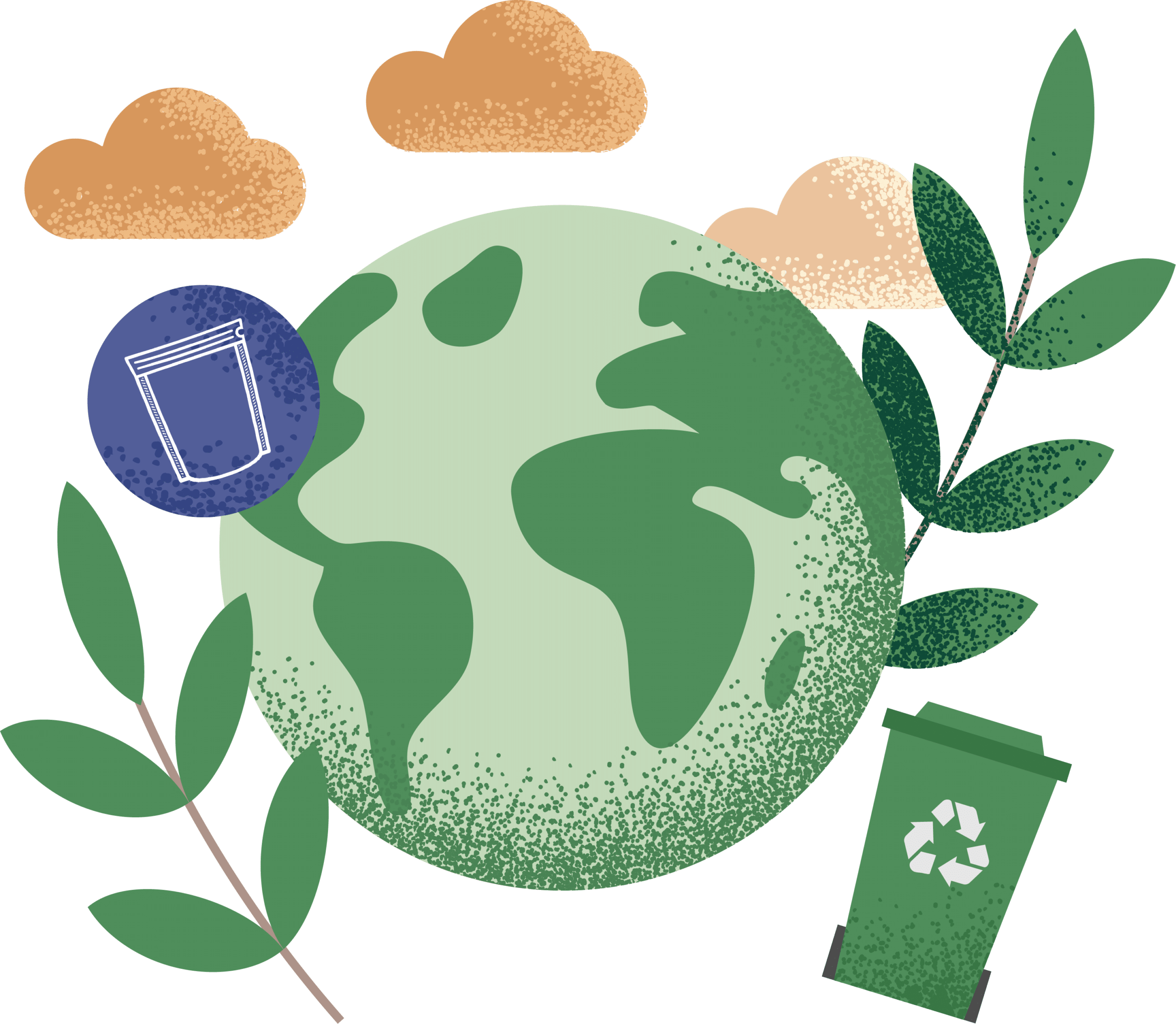
We will travel full circle, from material choices and the food grade challenges for non-PET recycled polymers, along the value chain to conversion, brand objectives and challenges, a retailer’s perspective, EPR legislation, data collection and uses, and finally to waste streams and household collections.
All FFP Sustainability Events are free to attend but numbers are limited, so early registration is advised to avoid disappointment and for the opportunity to join us on a sustainable journey and network with like-minded individuals and industry leaders.
Editor Notes:
FFP Packaging Solutions is a leading flexible packaging manufacturer and part of the Constantia Flexibles Group. We supply award-winning, innovative printed and plain films and laminates across a wide range of food categories. Specialities include Stand-up pouches in a variety of styles; Estercook, a market-leading ovenable, Roast-In-The-Bag packaging; Esterpeel, heatseal lidding film and the development of Sustainable packaging options. FFP’s print and lamination is fully colour-managed, and we are recognised across Europe for our excellent print quality in both 8-colour and FCP (Fixed Colour Palette). You can find out more at www.ffppkg.co.uk
Contact
Teresa McHugh
Marketing Manager, FFP Packaging Solutions Ltd
Tel: +44 (0) 7951 034916
Email: tmchugh@ffppkg.co.uk
Tenter Road, Moulton Park, Northampton NN3 6PZ
www.ffppkg.co.uk
Extended Producer Responsibility, EPR, is the UK Government’s scheme which aims to put the cost of collection, management and recycling of packaging onto the producer. It will incentivise producers to make their product packaging recyclable by modulating fees based on product recyclability.
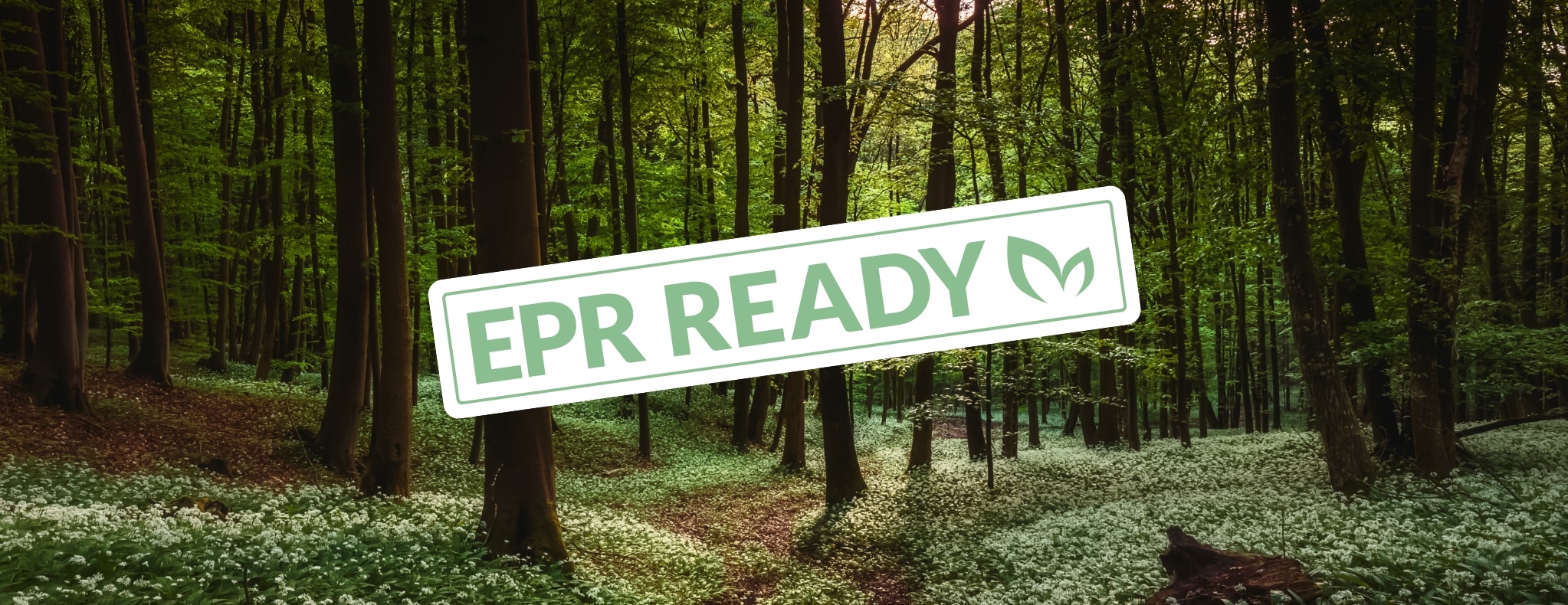
Initially proposed by the Department for Environment, Food & Rural Affairs in December 2018, the plan was to be rolled out by 2024. However, the EPR scheme has been delayed until 2027, which allows those who will be impacted time to fully understand the new regulations and implement any changes required.
What Is Extended Producer Responsibility?
EPR is a UK Government scheme where producers of consumer foods and packaging are to cover the costs of collecting, managing and recycling all packaging. Modulated fees aim to incentivise companies to make their packaging more recyclable, whilst the scheme also aims to reduce unnecessary packaging, increase quality and reduce litter.
The EPR framework will affect several sectors including brand owners, importers, sellers and service providers, but it has the intention to create a sustainable future for packaging, from the initial design and concept through to re-using or recycling packaging.
What’s The Difference Between EPR And PRN?
PRNs (Packaging Waste Recovery Notes) are evidence that packaging is recycled and they are issued by accredited reprocessors to represent how much packaging waste they have recycled. They were not designed to cover the full collection, sorting and recycling cost. EPR requires producers to review their plastic practices and consume the full net cost of packaging waste collection, management, recycling and disposal.
The PRN system will continue to be used (with modifications) alongside the new EPR scheme to show that recycling obligations have been met.
Timeline For Implementing EPR
Launching in 2023, the packaging EPR roadmap will be a phased approach within the UK; becoming operational in 2024 and fully rolled out by 2027. Here are some of the key dates you need to consider:

How Much Will EPR Cost Businesses?
EPR will change how the costs of compliance are divided throughout the supply chain, where currently everybody in the supply chain covers a certain percentage of obligation. With the EPR scheme, producers who place packaging on the market will pay 100% of the EPR charge.
Initially, the cost to packaging producers under the EPR scheme was estimated to be £2.7bn. However, the government’s response to a consultation on EPR revised this to an estimated £1.7bn.
This is dependent on whether you are classed as a ‘small’ or ‘large’ enterprise, based on:
- Your annual turnover
- How much packaging you handle
- How much packaging you supply
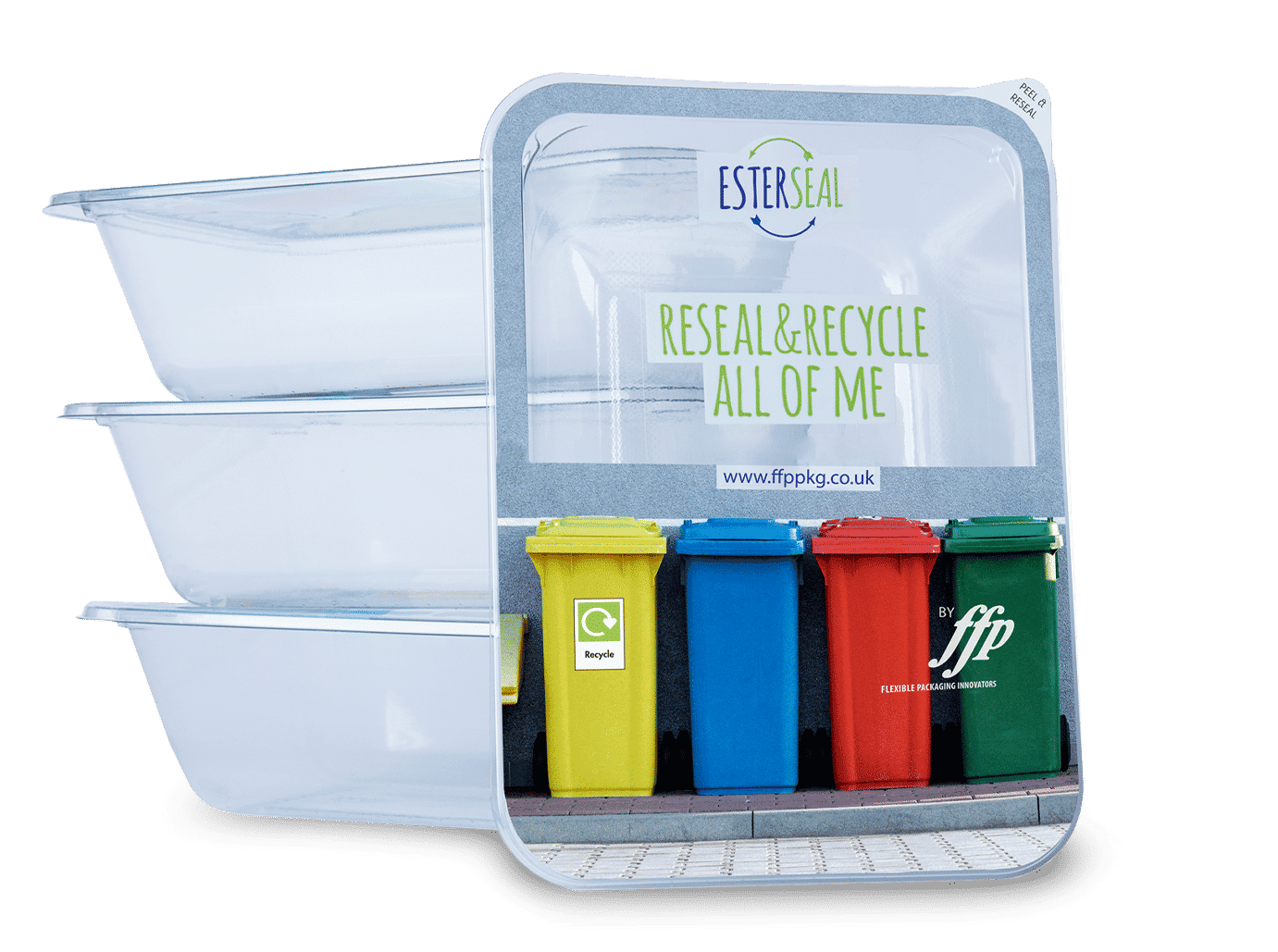
Changes To Packaging Required With EPR
The combination of the EPR and Recycle Now schemes will essentially transform the UK’s packaging supply chain. By addressing the issues at the start of the process, manufacturers can effectively produce packaging with economic, environmental and marketing benefits.
Along with clear labelling which will help increase recycling rates, all plastic packaging should be “mono-polymer”, meaning they’re made from one material which can be easily recycled. However, food packaging can become difficult due to certain necessities such as breathability, durability or heat resistance. Often compromising the reusable or recyclable element.
Mono-Material Packaging Solutions
Flexible packaging solutions such as mono-material PP, PE or Paper are ideal packaging solutions. These mono-polymer materials are recyclable and available in various packaging formats.
FFP’s Flexible Packaging Solutions
Here at FFP, we’re dedicated to producing sustainable flexible packaging solutions for multiple industries and products. Our latest flexible packaging products include:
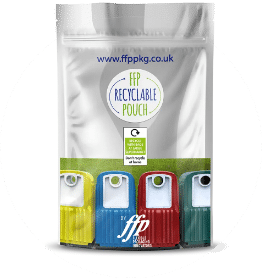
PP Packaging Solutions
PP (Polypropylene) mono-material packaging is recyclable by returning it to store. This lightweight and durable material can be supplied in a range of formats such as stand-up pouches, pre-made bags, sachets, film on the reel and even recyclable microwave packaging. FFP has also developed a resealable PP lidding film that can be used with trays of the same material, making the entire pack recyclable at kerbside, as classified by OPRL.
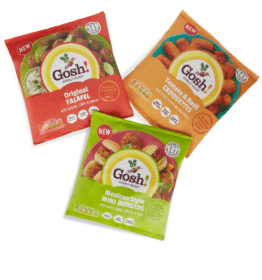
PE Packaging Solutions
Mono-material PE (Polyethylene) packaging can be recycled by returning to store. It can be converted into food pouches, pre-made bags, sachets and film, offering outstanding functionality and a versatile packaging solution for various applications and products, such as hot fill, frozen foods, as well as wet or liquid products.
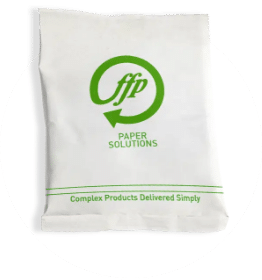
Paper Packaging Solutions
Our paper packaging provides a fully recyclable solution that can be collected via the paper recycling stream. It can be heat or cold-sealed and is available in a wide range of formats, offering sustainable packaging to an increased number of market sectors.
What Do Producers Need To Do To Comply With EPR?
If you’re impacted by the ERP requirements, stay one step ahead with the following actions:
Review Your Existing Packaging
Start by assessing your current plastic package design and usage. If you are not already in a recyclable specification, is it possible to switch to an alternative and keep the functionality your product requires? Furthermore, consider the on-pack messaging. Is it clear to the consumer how they should dispose of their packaging once they have finished with it?
Adopt Sustainable Flexible Packaging Solutions
PP, PE and paper packaging solutions provide multiple benefits. Their versatility means they can be used in multiple formats and barrier options are available to provide improved functionality. They are also a lightweight solution that can potentially reduce packaging weight. If used as a mono-material solution they are recyclable either via a kerbside collection or return to store.
How FFP Can Help
Our expert technicians can work with you to supply a solution in-line with the forthcoming EPR regulations, helping you create a more sustainable packing process with one of our flexible packaging options.
Extended Producer Responsibility FAQs
What does EPR cover?
For businesses that produce, supply, import or sell plastic packaging, the EPR scheme means you’ll cover the entire cost of producing, collecting, managing, recycling and disposing of your packaging.
Are small companies affected by EPR?
A ‘small’ company is classified as an organisation with a turnover of less than £2m, that handles less than 50 tonnes of packaging. Companies which fall into this category will have to submit packaging reports but not contribute financially.
Is flexible and film-recyclable packaging affected by the EPR scheme?
The EPR timeline confirms that flexible and film-recyclable packaging will be included with the EPR scheme; both options need to be recyclable via kerbside collection by March 2027.
What products are affected by EPR?
All consumer packaging will be affected by the EPR framework. As well as clear recycling information becoming an essential requirement on all packaging. Plastic films and flexible packaging have a delayed date for this labelling of March 2027.
Why is EPR being implemented?
EPR is shifting the costs and responsibility of how packaging can be sustainably disposed of, onto the producers and manufacturers, with the aim to promote more eco-friendly and recyclable packaging solutions.
Upgrading your sustainability efforts
At FFP, we have wholeheartedly committed to the development of materials and pack formats that can help reduce any negative impact on the environment. Our technical expertise and manufacturing capability put us in an optimal position to drive the innovation of more sustainable flexible packaging solutions.
Our mission

Are you up to date with the Plastic Packaging Tax?
In April 2022, the Plastic Packaging Tax was brought in, affecting packing manufacturers, producers, and suppliers. If you haven’t already reviewed your current packaging, our Plastic Tax Guide has everything you need to know. As well as helping you find ways to reduce how much the plastic tax will affect your business.
Following last year’s success, FFP Packaging Solutions once again attended Packaging Innovations & Empack 2023 – the UK’s biggest event for the packaging industry.
Hosting a record number of exhibitors and visitors, the NEC placed a spotlight on the innovation and evolution of branded packaging. With FFP displaying its 4 sustainable flexible packaging solutions:
Recyclable Laminates and Pouches
A recyclable packaging solution, available in PE and PP, in a range of formats with outstanding functionality.
Recyclable Lidding Film
The first mono material resealable pack in the UK to be classified as ‘Recycle’ by OPRL and collected through the existing waste collection system.
Recyclable Paper Packaging
A fully recyclable paper packaging solution that can be heat or cold sealed and available in a wide range of formats.
PP Steam – Recyclable Microwavable Packaging
A recyclable microwavable packaging solution that can be recycled via the PP waste collection stream, as classified by OPRL.
Thank you to our visitors
For the second year in a row, FFP is thrilled to have won the show organiser’s competition for bringing the most visitors to the Packaging Innovations & Empack 2023 event. It was great to see you there, along with over 6,500 visitors.
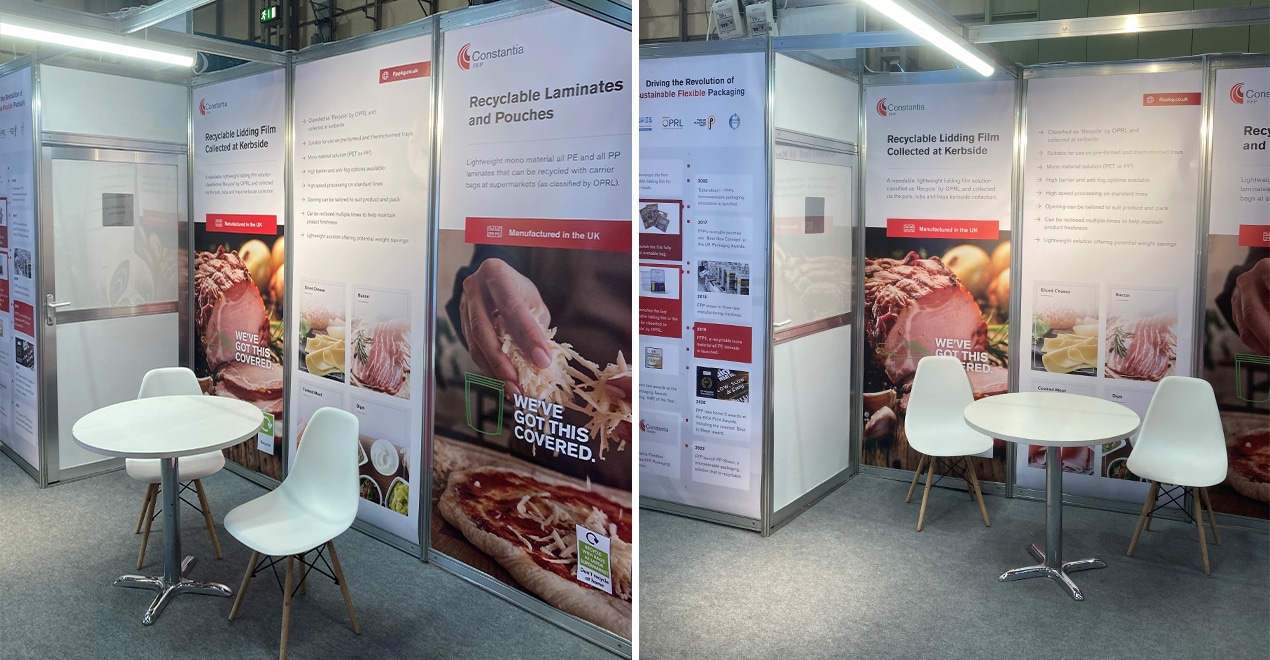
At FFP, we have wholeheartedly committed to the development of materials and pack formats that can help to reduce any negative impact on the environment. Our technical expertise and manufacturing capability put us in an optimal position to drive the innovation of more sustainable flexible packaging solutions. This is something that we look forward to showcasing again at Packaging Innovations 2024 and future events.
Find out more about Find out more about Packaging Innovations & Empack 2023

Get In Touch
For further information on FFP and our products or to discuss your application, please don’t hesitate to contact us.
PP-Steam is an innovation from FFP that makes microwave cooking simple, consistent, and convenient. Most importantly, it can be recycled by returning it to large supermarkets, as classified by OPRL.
After the success of their Estersteam flexible microwaveable packaging, FFP has moved one step further with the development of a recyclable solution, PP-Steam. Recyclable by returning to store through the PP (polypropylene) waste collection stream, PP-Steam supports FFP’s continued sustainability mission.
Jack Watson, Technical Director at FFP comments;
“FFP is proud of its reputation for innovation and bringing products to market which meet consumer needs. Our expertise in high-temperature packaging and knowledge of the recycling chain has allowed us to focus our NPD on developing sustainable solutions, which can be conveniently recycled in current waste streams. PP-Steam is the next step in that important journey.”
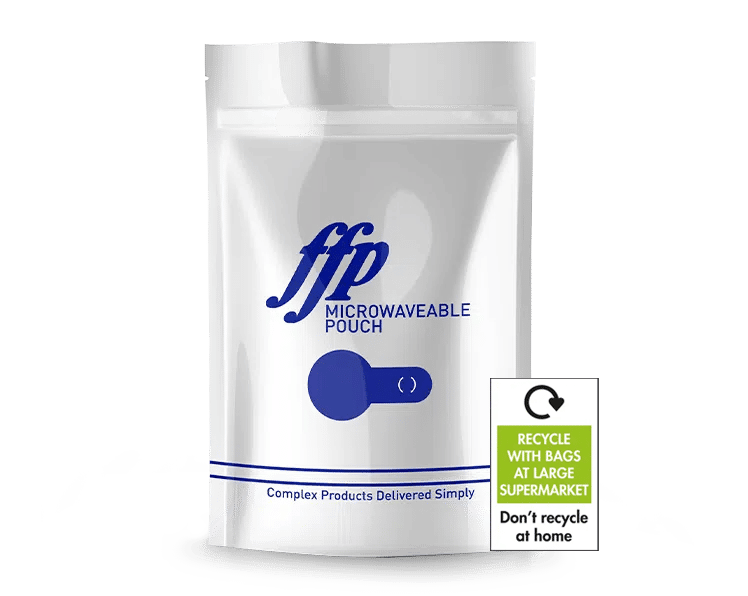
The expert technicians at FFP consistently look at ways to introduce advanced and eco-friendly solutions that’ll evolve the food packaging industry. With PP-Steam, they’ve applied their tried and tested valve technology from Estersteam to the design, so consumers don’t need to pierce or tear the packaging, but can place it straight in the microwave.
PP-Steam’s primary feature is its recyclability. Yet, the attached valve and vent provide more controlled and consistent cooking results for consumers; as the heat increases, the valve peels back to release pressure, whilst the vent helps prevent implosion. For our customers, the valve is pre-applied by FFP during the production process, allowing the film to be run as a registered film on existing packaging lines at normal speed with no changes to existing packaging lines required.
Sustainable Solutions
FFP has previously demonstrated how flexible packaging solutions provide a sustainable option and a positive impact on brands, and PP-Steam is no exception. Available in reel form, pre-made bags or stand-up pouches, this film can be supplied fully printed for ultimate shelf appeal for suppliers and consumers.
learn more about FFP’s sustainability efforts

On February 15th and 16th 2023, FFP will be taking part and exhibiting at one of the largest packaging innovation events in the UK: Packaging Innovations & Empack 2023, at the NEC in Birmingham.
We can’t wait to meet thousands of like-minded businesses looking to find sustainable solutions within the food packaging industry and other sectors.
The FFP team will be showcasing our 4 unique flexible packaging solutions: Recyclable laminates and pouches, Recyclable lidding film, Recyclable paper packaging and Recyclable microwavable flexible packaging; promoting innovative packaging solutions for our suppliers.
Recyclable Laminates and Pouches
A recyclable packaging solution, available in PE and PP, in a range of formats with outstanding functionality.
Recyclable Lidding Film
The first mono material resealable pack in the UK to be classified as ‘Recycle’ by OPRL and collected through the existing waste collection system.
Recyclable Paper Packaging
A fully recyclable paper packaging solution that can be heat or cold sealed and available in a wide range of formats.
PP Steam – Recyclable Microwavable Packaging
A recyclable microwavable packaging solution that can be recycled via the PP waste collection stream, as classified by OPRL.
If you haven’t registered to attend yet, click the link below to use our referral link. We look forward to seeing you there.
At FFP, we have wholeheartedly committed to the development of materials and pack formats that can help to reduce any negative impact on the environment. Our technical expertise and manufacturing capability put us in an optimal position to drive the innovation of more sustainable flexible packaging solutions. This is something that we look forward to showcasing again at Packaging Innovations 2023 and at future events.
Find out more about Packaging Innovations & Empack 2022

Globally, over 1/3 of all food produced goes to waste every year with 9.5 million tonnes from the UK alone (Source: Business Waste). Food waste is a major factor of climate change and as our population continues to grow, this issue is becoming more prevalent than ever before. But where do we start?
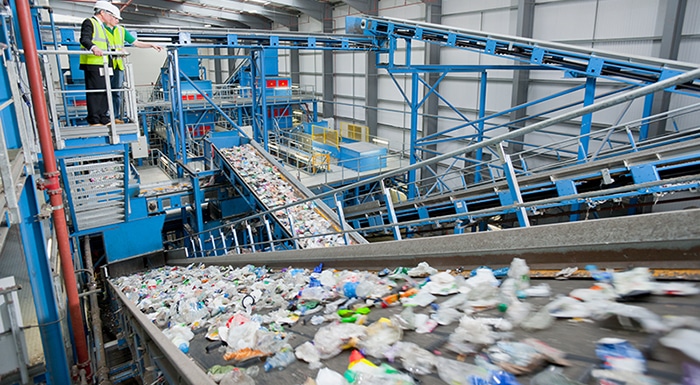
According to the BPF, 50% of food waste occurs during food production and processing compared to the 10% contributed by packaging. Plastic packaging accounts for even less, indicating how a product’s packaging can massively influence the protection of produce throughout the supply chain, a product’s lifespan, and consumers’ perception and behaviour towards how they store, consume and dispose of food.
In this blog, we look at some of the reasons behind food waste and how the packaging industry can sustainably play its part in helping reduce it.
What Are The Causes Of Food Waste?
Essentially, food waste consists of produce that is disposed of rather than consumed. This can occur at any stage of the supply chain and has huge humanitarian, economic and environmental impacts. Some of the main causes include:
- Over purchasing
- Committing to ‘best before’ dates
- Products spoiling due to packaging that is not fit for purpose
- Lack of education regarding food disposal
Why Do We Use Plastic Packaging?
In recent years, plastic has been in the spotlight and brands and retailers are working towards either reducing the amount of plastic they use or trying to find alternative recyclable packaging solutions, but it’s important to understand the reasons why plastic has historically been a go-to for packaging. Plastic has many different functions which adapt to the modern requirements consumers and retailers are asking for and is used because of its multiple attributes such as:
Did You Know?
Plastic packaging adds 10 days to the life of a steak
Flexible packaging extends a banana’s life by 3 days
Film extends the life of cucumbers by 14 days
(Source: British Plastics Federation)
Sustainability In Food Packaging
Packaging will always play an important role in enhancing a product’s shelf-life and protecting it from damage. With the development of new technology, along with innovative minds and design, there’s always room to optimise packaging potential and reduce food waste including:
- Using mono-material, recyclable packaging
- Choosing materials which can be collected with kerbside recycling services
- Providing clear recycling information on the packaging
- Resealable packaging to help produce stay fresh for longer
Provide Portioning And Convenience
Packaging and selling products individually, or containing individually wrapped items in one package, allows customers to buy and consume the quantity they need. With over 8 million single-person households within the UK (Source: Statista), ‘family-sized’ packs are not as fundamental as they used to be.
Items stored in recyclable or resealable packaging provide convenience for consumers and help maintain the lifespan of a product. It also eliminates the use of additional, and less sustainable, packaging such as cling film or sandwich bags to store any remaining food. These materials don’t offer the same functionality of packaging designed to maximise the shelf life of a specific product and minimise food waste.
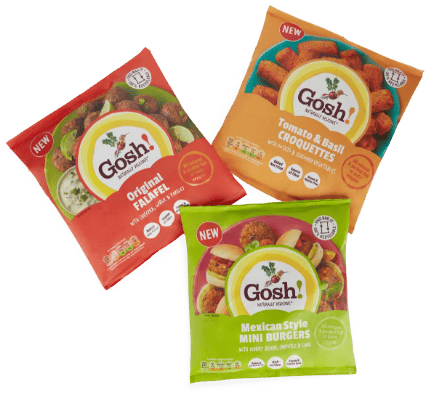
Use Resealable Options
Resealable & Recyclable Lidding Film
FFP can offer a recyclable lidding film solution that is resealable, assisting in maintaining product freshness. It’s also suitable for Modified Atmosphere Packaging (MAP) to reduce product spoilage and increase shelf life. Lidding film is made from a lightweight, recyclable material and designed to be attached to trays of the same material. This means that the whole package can be conveniently collected for recycling in the consumers’ kerbside collection.
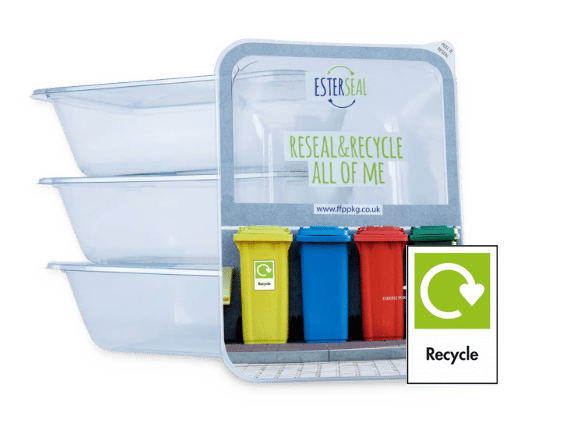
Mono-material recyclable laminates
mono-material laminates can be supplied in a wide variety of formats, such as pre-made pouches and bags, sachets and film-on-a-reel. They are an extremely versatile packaging solution suitable for a wide range of products. High barrier options are also available to protect the food and extend shelf-life. Reseal features can be provided such as zips on pouches to aid portion control and assist in maintaining product freshness. Currently, all PE and all PP mono material laminates can be recycled by returning to larger supermarkets.
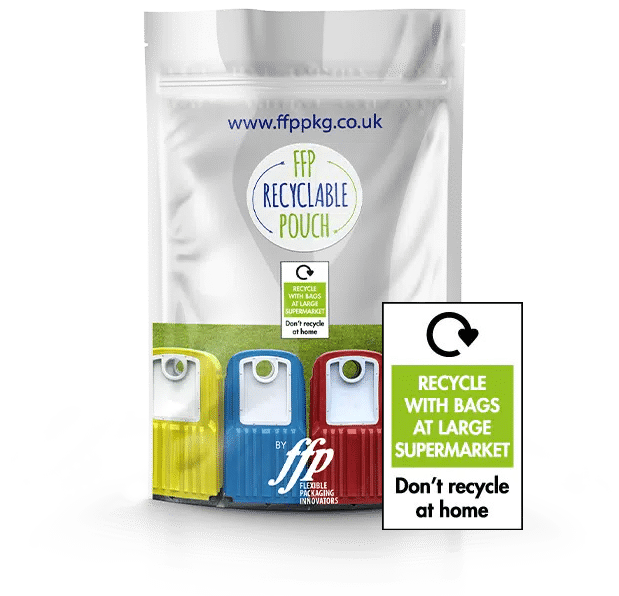
Changing Customer Perceptions
Although we know packaging helps with extending the life of food, it ultimately comes down to the consumer’s actions. Whether at home or displayed in shops, food not stored in optimal conditions can become discoloured, misshapen and less appealing. In addition to this, if the aesthetics of food packaging is dented, damaged or faulty, the food inside could be perceived as tainted and therefore not good for consumption.
Educating retailers and consumers play an essential role. Many brands have removed their ‘best before’ dates; building consumer confidence in a product’s packaging to help maintain product freshness until opened and consumed within the recommended number of days. Alongside this, is the wider awareness of recyclable packaging and how to recycle it, encouraging customers to do so and potentially influencing their future shopping choices.
Sustainable Solutions
Packaging is not the only solution to food wastage but it can help reduce the amount thrown away and consequential environmental damage. Here at FFP, we are dedicated to developing sustainable and flexible packaging solutions which can help reduce the impact of climate change on our planet. To learn more, view our sustainable packaging solutions or get in touch.
find out more

